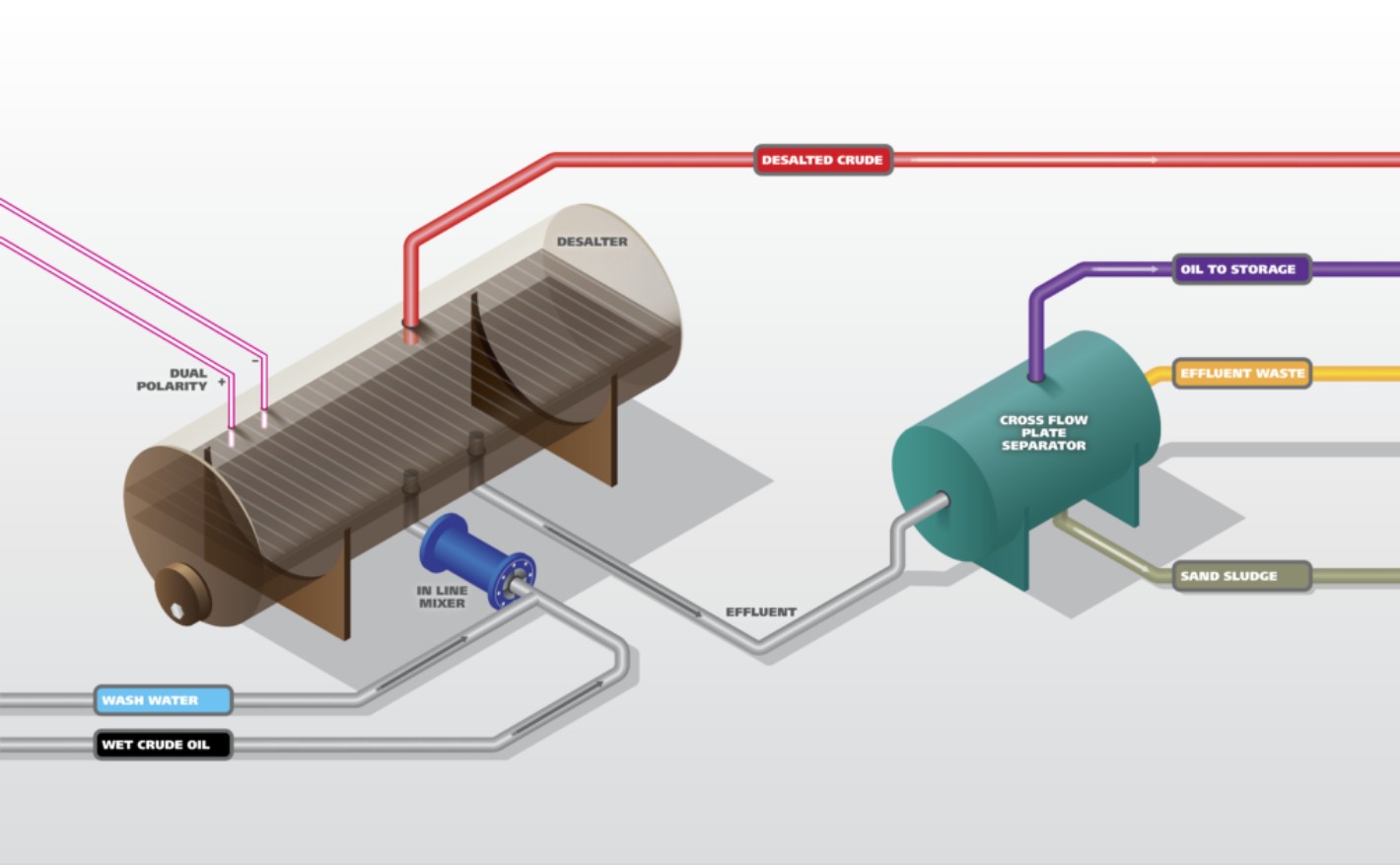Crude Desalting

Salt Content
Excessive amounts of chloride salts in crude oil result in higher corrosion rates in refining units and have a detrimental effect on catalysts. Desalting techniques are well established, but continuous monitoring of the salt content is needed for process control and cost reduction. Salt in crude oil is determined by titration using ASTM D6470 or by conductometric measurement with ASTM D3230.
Water Content by ASTM D4347 & ASTM D4928
Crude oil that comes in contact with water carries some residual water. If the level of water in crude oil exceeds 0.1 to 0.5%, the distillation column will over pressurize. This creates unnecessary wear on the column and a potential safety issue. Water content in crude oil is monitored using ASTM D4347 and ASTM D4928.
Mercaptans & Hydrogen Sulfide
Raw oil contains several percent by weight of sulfur compounds. These compounds not only have an unpleasant smell, they are also environmentally harmful and corrosive which is why they must be largely removed during refining.
The 2045TI Ex Proof Analyzer with a flexible sample pretreatment system is found in a very wide variety of refinery applications. It monitors mercaptan and H2S content in accordance with ASTM D3227 and UOP163 and can also be used for the determination of ammonia, halogen and phenol content as well as for the bromide index, saponification and acid number. The analyzer fulfills EU Directive 94/9/EC (ATEX95) and is certified for Zones 1 and 2.
Chloride Monitoring in Crude Desalting
Monitoring of the chloride in crude and after desalting is needed to check the desalting process efficiency and to overcome corrosion problems in downstream processes. The analytical measuring method is ASTM D3230 by conductivity detection. Since the sample take-off point is typically in a hazardous environment the ADI 2045 Ex Proof Process Analyzer is designed and equipped to meet directives 94/9EC (ATEX95).
Desalting Water Analysis
A large portion of the water used in the crude desalting process is recycled. The source of wash water for the desalters varies widely; in some cases stripped phonic sour water is used as wash water. Metrohm provides dedicated online solutions for important water analysis parameters such as: Sulfide, Ammonia, Phenol, pH, Alkalinity, Hardness, Conductivity.
